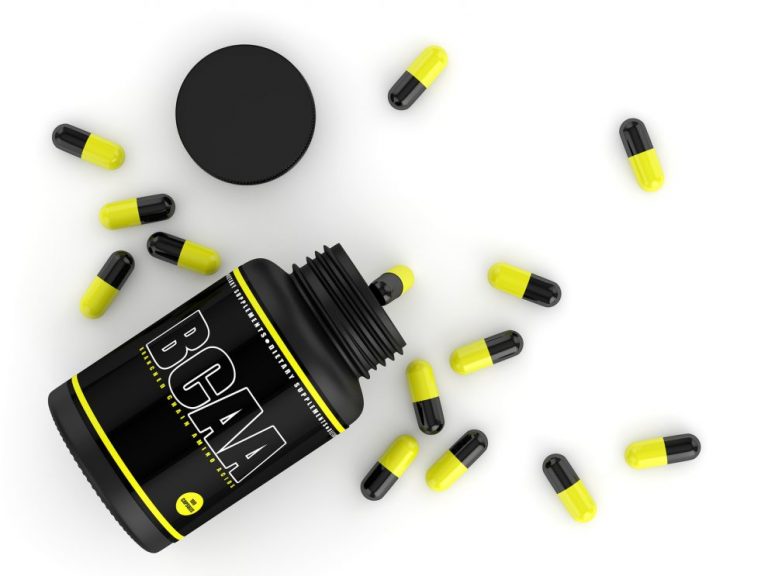BCAAs are branched-chain amino acids, which are one of the most popular dietary supplements on the market that are used by athletes. BCAAs include leucine, isoleucine and valine. They are exogenous amino acids, so those that the body is unable to produce alone, but which must be provided to the body along with food or in the form of appropriate supplements. For the development and construction of tissues in muscles and bones, proteins are necessary, and amino acids are included in proteins.
BCAA operation
BCAA's activity is very broad and appreciated above all by athletes, both amateurs and professionals. BCAAs are a source of extra energy. Thanks to the fact that they have an anti-catabolic effect, and thus prevent the breakdown of muscle tissue, the body is not able to exhaust energy sources, because it is constantly supplied in the form of BCAA. What's more, it supports muscle development significantly. They are provided with all the necessary nutrients that allow these muscles to grow. BCAA does not exhaust the body during exercise. This means that even difficult training will not give us the fatigue, as in the case of non-use of these amino acids. What else? Leucine affects the burning of body fat and thereby lowering body weight, regulating the level of sugar as well as cholesterol in the blood. Valine plays a role in building muscle mass. Supports endurance and endurance.Isoleucine, in turn, perfectly deals with tissue regeneration, which speeds up healing once, improves skin, hair and nail condition, and copes with faster recovery after training. BCAA workson fatigue and weakness. Thanks to BCAA supplements, we will not only get a dream figure, but also improve the condition and most importantly - well-being.
Dosage of BCAA
If we want to help BCAA in the form of supplements, we should bet on top shelf products. The administration of these amino acids takes place during the training period. It's good to take 5 g of pure BCAA before training, reaching up to 10 g depending on your weight and intensity of training, the second portion right after your workout. BCAA should also be taken on non-workout days, in the morning on an empty stomach, and the second portion before going to bed.
Research confirming the effectiveness of BCAA
BCAA contributes, among other things, to the development of body mass, to the regeneration of muscles after training, and to delay muscle fatigue during training. In short, thanks to the use of these amino acids, we will obtain a correspondingly faster muscle mass, we will have more strength during training, and after the workout a lower sensation of muscle fatigue and relatively less perceptible sores.
And all this is supported by numerous studies. The first of them was performed on a group of active people. Some received a sheikh consisting of a whey protein supplement, a second sheikh with an additional BCAA insert of 3g and 5g L-glutamine. After ten weeks, the results showed that people taking BCAA had greater strength and greater massive progression, as much as 1.5 kg.






